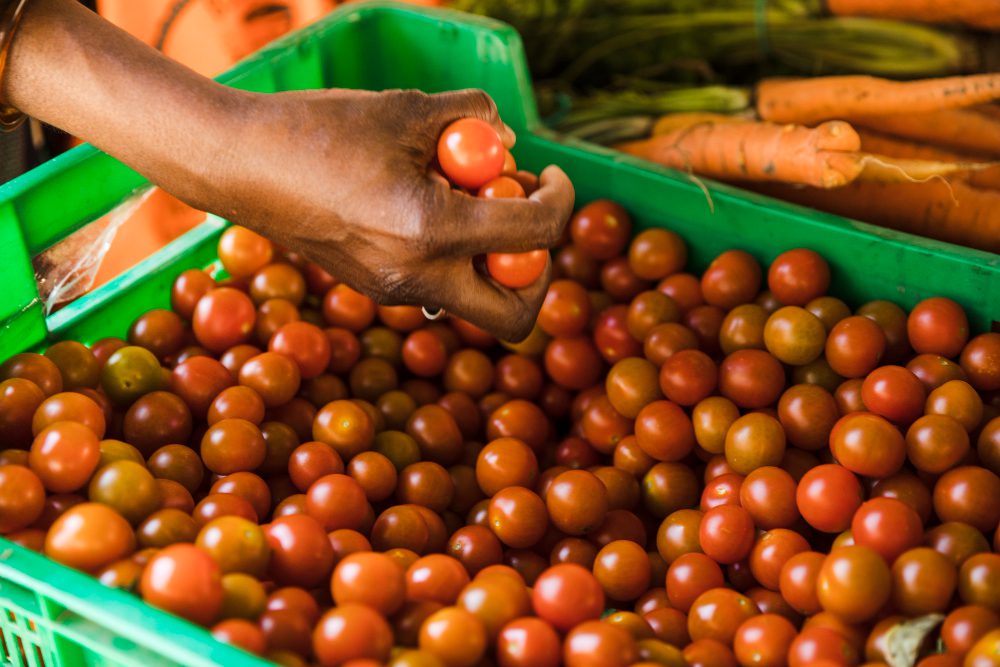

Africa’s agricultural heartbeat has long sustained its people, yet for decades, the continent has ceded much of its economic gain to global markets by exporting raw commodities. Now, however, the tide is turning. Across the continent, agro-processing is taking root, transforming how Africa’s agricultural wealth is harnessed and ensuring its farmers are no longer left at the margins of prosperity.
In Nigeria, a new chapter begins with a tomato. Kaduna State’s 20 billion Naira ($48 million) tomato processing plant is not a mere facility; it’s a symbol of change for the country’s farmers. A farmer who, for years, struggled to sell his harvest at a fair price can now bring his produce to this plant, knowing it will be transformed into a product that sustains families and reduces Nigeria’s reliance on imports. Beyond the walls of this factory, 2,000 individuals have found jobs, and countless farmers have secured a dependable market for their efforts. For many, this is more than progress; it’s a lifeline.
Ethiopia’s story carries the same spirit of empowerment, but on a broader canvas. The country’s agro-industrial parks, like the Bure Integrated Agro-Industrial Park, are reshaping rural communities. A sesame farmer who once had no choice but to sell raw seeds at low prices now finds those seeds processed into high-value oil, creating jobs for up to 25,000 people in and around the park. These parks blend Ethiopia’s traditions with cutting-edge technology, bringing the country closer to its ambition of becoming a middle-income economy by 2025. For the farmer, it’s not solely about income; it’s about dignity and opportunity.
Ghana’s cocoa story is one of reclaiming control. For decades, farmers watched their beans shipped abroad, with little benefit returning home. Today, in places like Tema, the beans are turned into cocoa butter, powder, and liquor that command global attention. Thousands of jobs have been created, and families across Ghana feel the impact. The change is not purely economic; it’s deeply personal, as farmers and factory workers alike see the fruits of their labor valued like never before.
Ivory Coast’s farmers know too well the sting of waste. A mango grower who once watched unsold fruit rot in the fields now sees those mangoes turned into dried snacks or refreshing juices at the AS Food waste reduction plant in Abidjan. For the farmer, it’s a second chance, a way to ensure their hard work does not go to waste. The plant processes over 10,000 metric tons of produce annually, proving that every crop has potential when given the right opportunity.
In Kenya, the connections being forged through agro-processing are profound. A smallholder farmer tending to rows of vegetables, uncertain if they’ll reach market in time, now finds a solution through the Naivasha Horticultural Processing Zone. Cold storage, packaging, and export services ensure those vegetables arrive fresh in international markets. Meanwhile, dairy farmers see their milk collected and processed by companies like Brookside Dairy, creating a reliable income stream. These systems don’t simply support farmers; they weave them into the fabric of Kenya’s economy, where agro-processing contributes over 40% of the manufacturing GDP.
Tanzania’s sunflower farmers are finding new strength in their seeds. The Singida-based processing plant has the capacity to process up to 200 tons of sunflower seeds daily, turning them into cooking oil that meets local demand and reduces reliance on imports. The sunflower industry employs thousands across the value chain, from growers to plant workers, creating stable income sources and bolstering rural economies. Additionally, Tanzania’s burgeoning avocado oil sector, supported by a new plant in Njombe, is opening up international markets, giving farmers access to higher-value export opportunities. For these communities, it’s about more than economics; it’s about stability, pride, and the recognition of their critical role in the nation’s growth.


